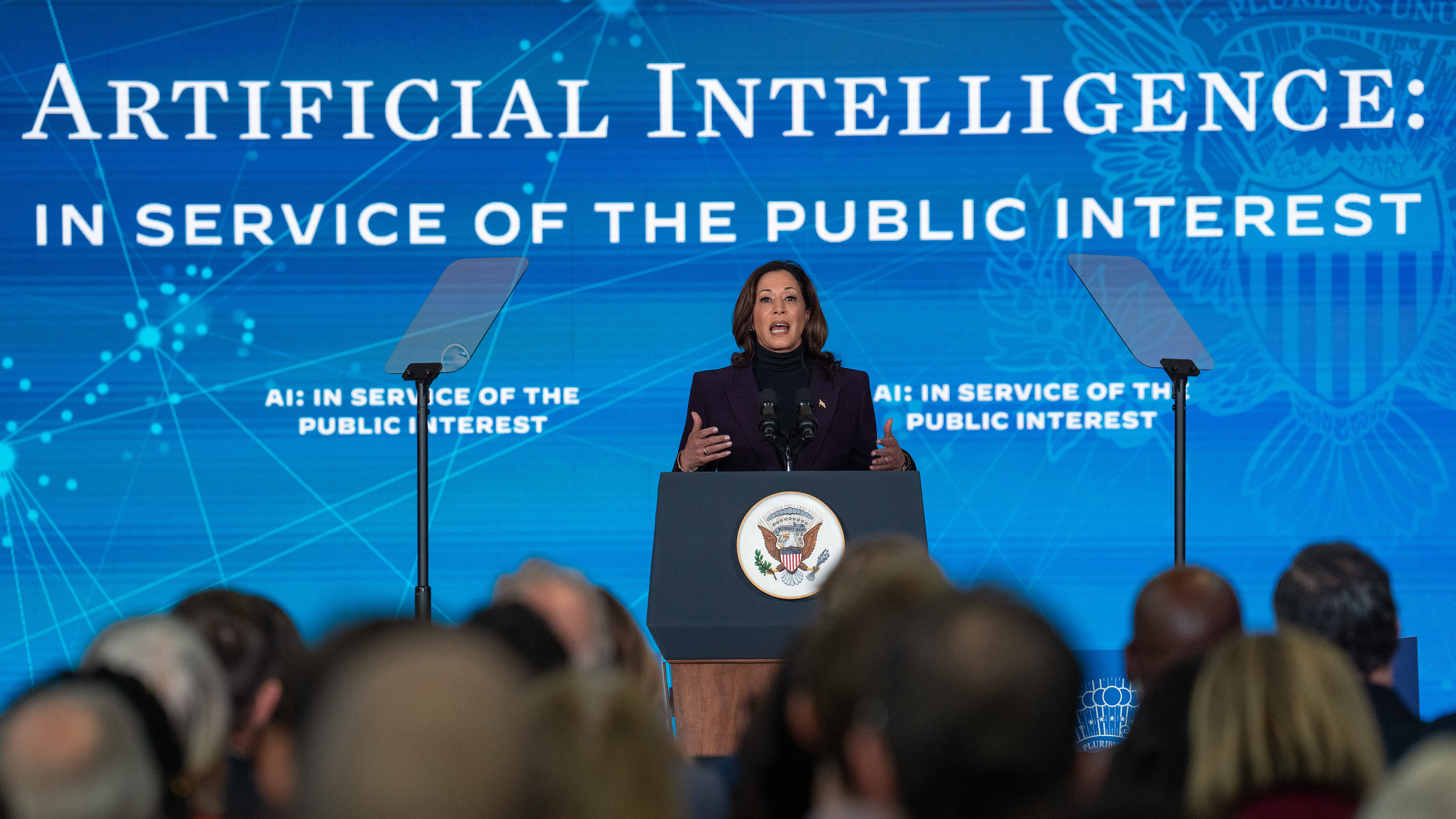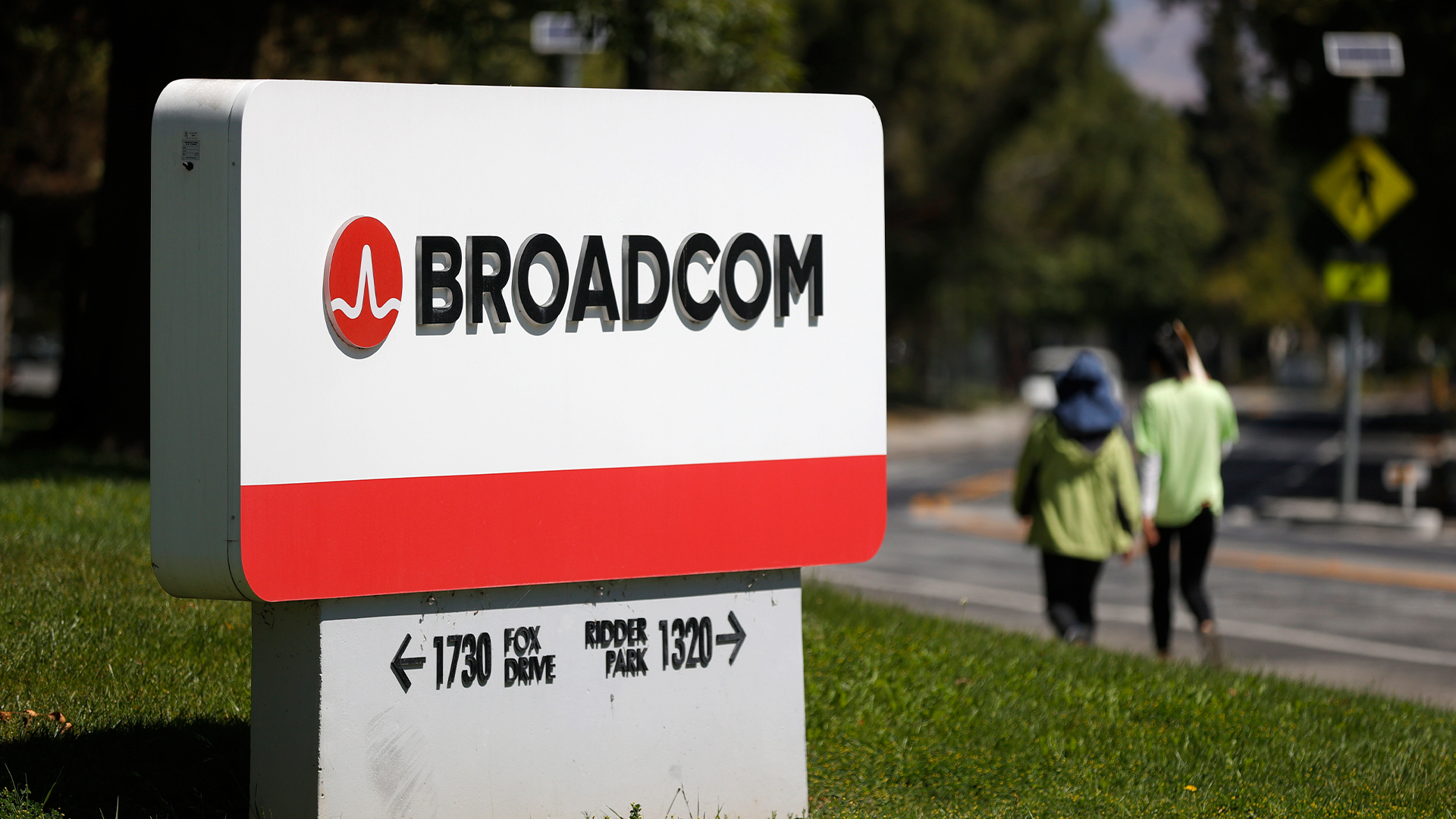Where will the next democratic presidential nominee stand on tech policy?
The uncertain direction of US politics raises questions for the country’s tech industry, with candidates now being scrutinized over past positions on issues such as AI regulation


Joe Biden has stepped down as the Democratic presidential candidate, leaving both a vacancy for the party’s next nominee in his wake and much to be answered on the next presidential candidate’s tech policy platform.
President Biden's exit has put new candidates to the fore, with current vice president Kamala Harris the most likely choice to take over. Others, such as governor of California Gavin Newsom and governor of Michigan Gretchen Whitmer are also receiving widespread coverage in the press.
Most of the names coming up in conversation have had things to say or moves to make in the tech industry, from AI regulation to the US semiconductor industry.
Harris, for example, started her career in the tech heartland of Silicon Valley as San Francisco’s district attorney and has had various names in the industry come out in support following the move from Biden.
“I wholeheartedly support Kamala Harris and her candidacy for President of the United States in our fight for democracy in November,” said LinkedIn co-founder Reid Hoffman in a post on X.
As part of her 2020 presidential campaign, Harris took part in a question and answer series with the New York Times alongside 20 other Democrat presidential candidates.
Asked if large tech companies such as Facebook, Amazon, and Google should be broken up, a move some of her rival candidates had expressed support for, Harris stopped short and instead called for increased protections for individuals.
Sign up today and you will receive a free copy of our Future Focus 2025 report - the leading guidance on AI, cybersecurity and other IT challenges as per 700+ senior executives
“I believe tech companies have got to be regulated in a way that we can ensure, and the American consumer can be certain, that their privacy is not being compromised.”
Since assuming the office of vice president, Harris has made repeated public comments about regulating AI development.
“President Biden and I reject the false choice that suggests we can either protect the public or advance innovation. We can and we must do both,” Harris said as part of an address made at the US Embassy in London.
“As leaders from government, civil society, and the private sector, let us work together to build a future where AI creates opportunity, advances equity, fundamental freedoms and rights being protected,” she added.
As part of the same speech, Harris commented on the executive order passed by Biden earlier that year, describing it as the “initial step toward a safer AI future.” The executive order mandated developers and agencies to create their own standards with the aim of promoting ethical AI development.
Newsom and Whitmer have made moves in the tech space
Current governor of the tech-heavy state of California, Gavin Newsom has had his fair share of involvement with the tech industry. Earlier this year, for example, Newsom warned against an over-regulation of AI per Politico.
“I don’t want to cede this space to other states or other countries,” Newsom said at an event in San Francisco.
“If we over-regulate, if we overindulge, if we chase the shiny object, we could put ourselves in a perilous position,” he added.
Newsom signed an executive order in 2023 on the regulation of AI in California, describing his office as taking a “clear-eyed, humble approach to this world-changing technology” by weighing up its advantages and disadvantages in a balanced way.
RELATED WHITEPAPER

In June 2024 Whitmer announced a $10 million investment into Michigan’s semiconductor manufacturing industry in a move to drive the state’s tech talent. In 2023, she signed a bill requiring political campaigns to clearly mark campaign adverts that used AI technology to stem the potential flow of misinformation.
“But I anticipate this will not be the last action we take with regards to protecting voters from AI,” said Jocelyn Benson, secretary of state of Michigan per Michigan Public. “It’s just a significant first step that makes Michigan at the forefront, one of five states with these protections already in place.”

George Fitzmaurice is a former Staff Writer at ITPro and ChannelPro, with a particular interest in AI regulation, data legislation, and market development. After graduating from the University of Oxford with a degree in English Language and Literature, he undertook an internship at the New Statesman before starting at ITPro. Outside of the office, George is both an aspiring musician and an avid reader.
-
 Cyber resilience in the UK: learning to take the punches
Cyber resilience in the UK: learning to take the punchesColumn UK law now puts resilience at the centre of cybersecurity strategies – but is legislation simply catching up with enterprise understanding that resilience is more than just an IT issue?
-
 CISPE claims European Commission gave Broadcom a ‘blank cheque to raise prices, lock-in, and squeeze customers’ with VMware deal
CISPE claims European Commission gave Broadcom a ‘blank cheque to raise prices, lock-in, and squeeze customers’ with VMware dealNews Cloud providers have issued a formal response to the General Court of the European Union after the Commission defended its approval of the deal